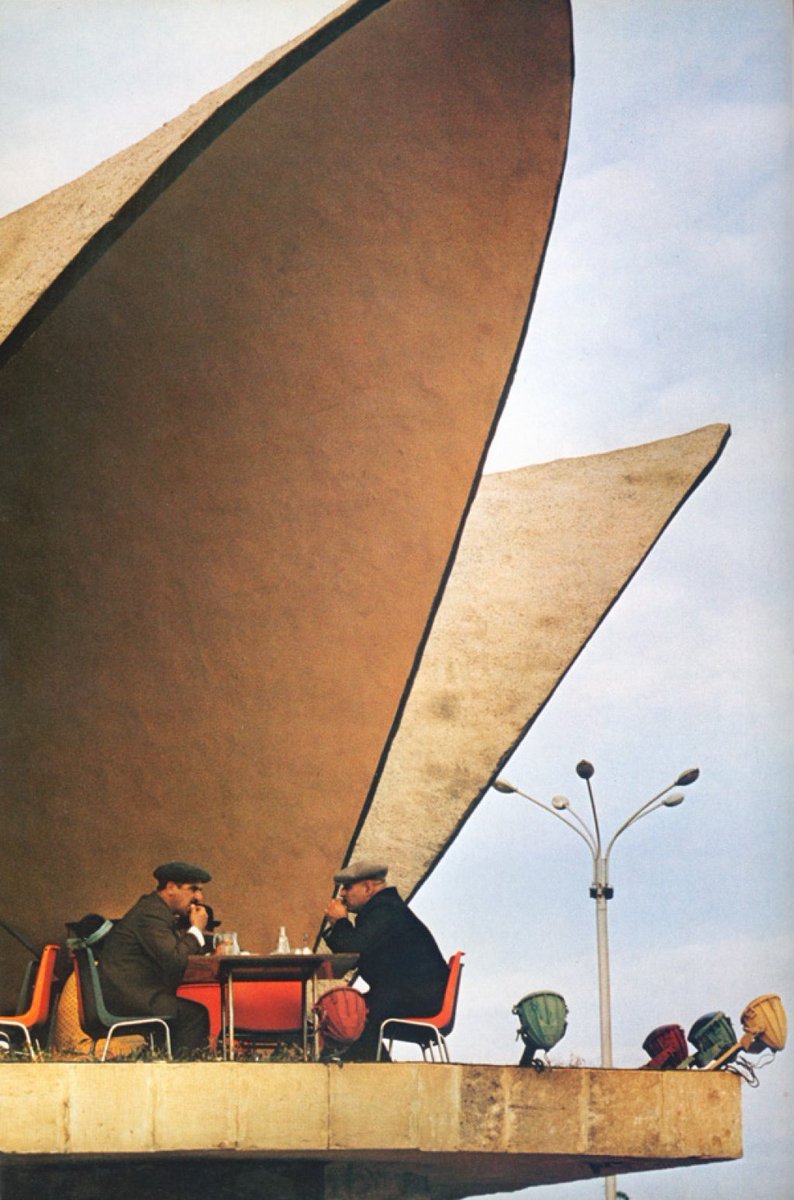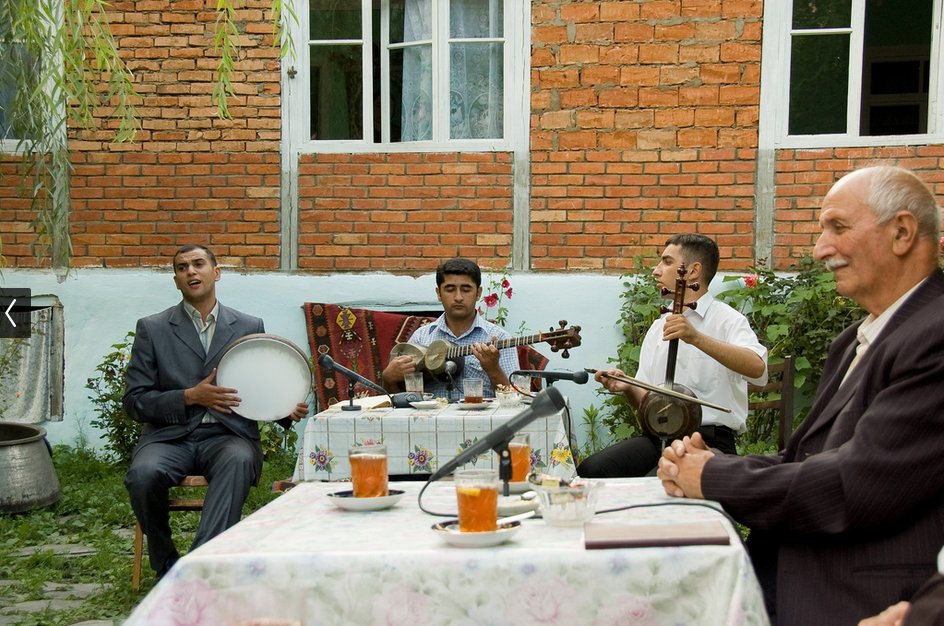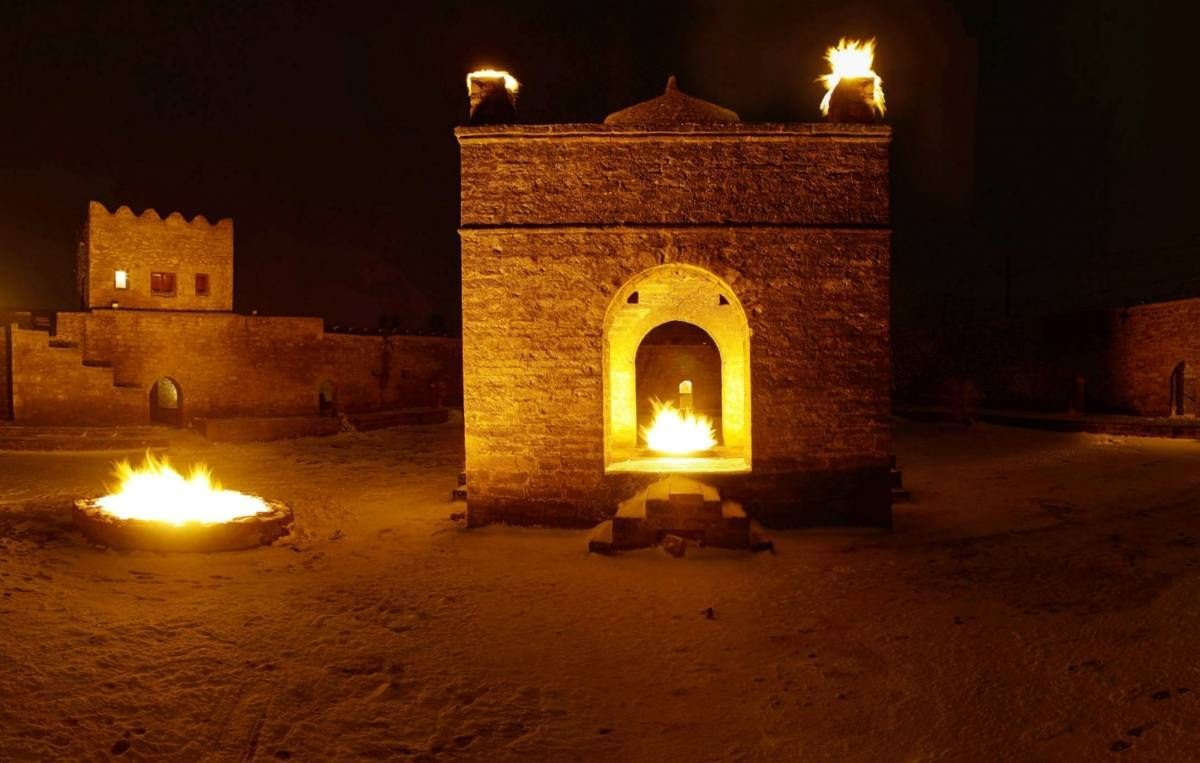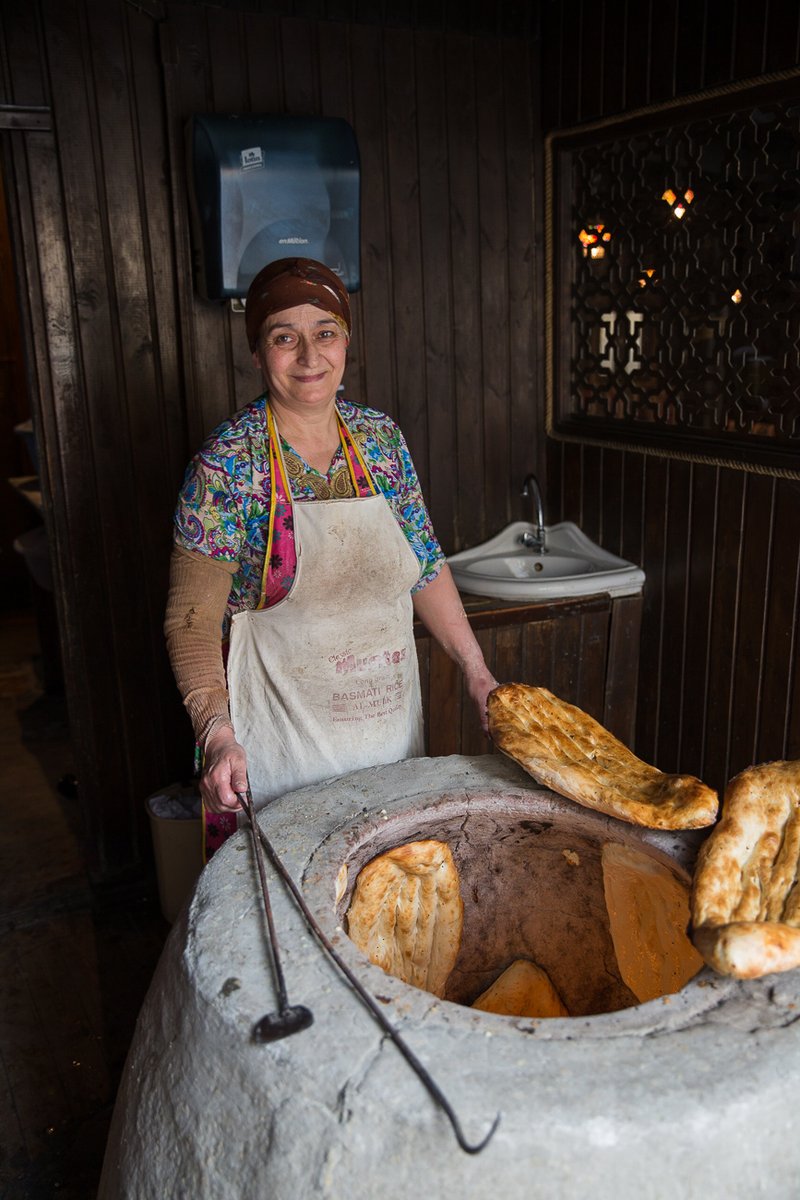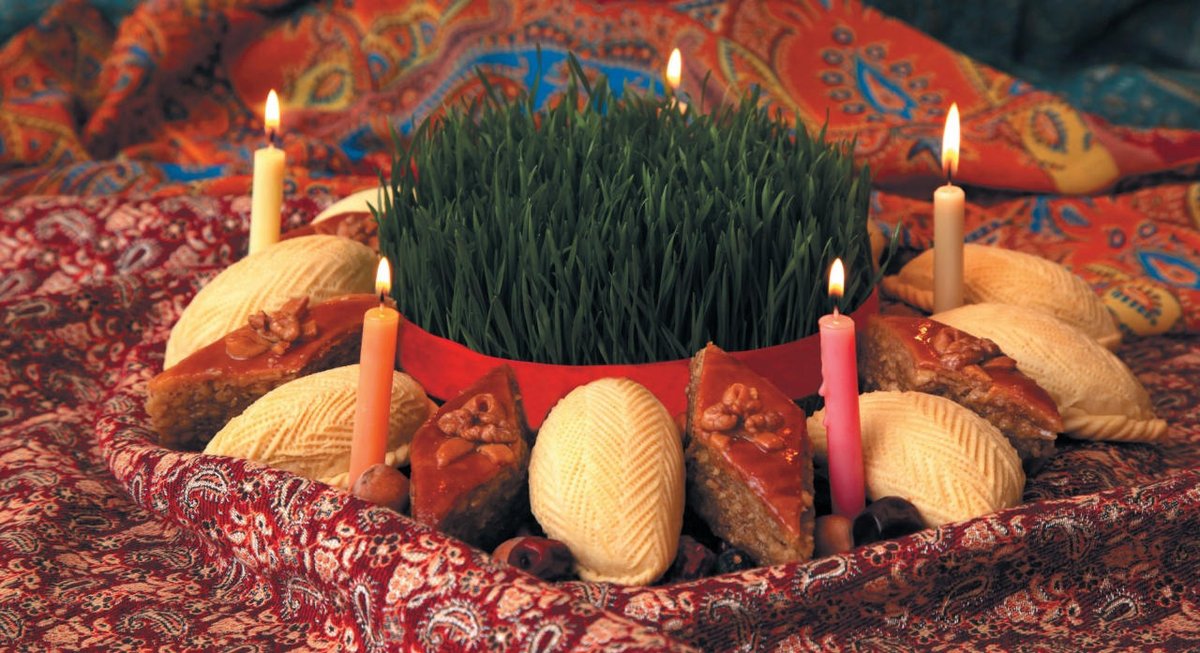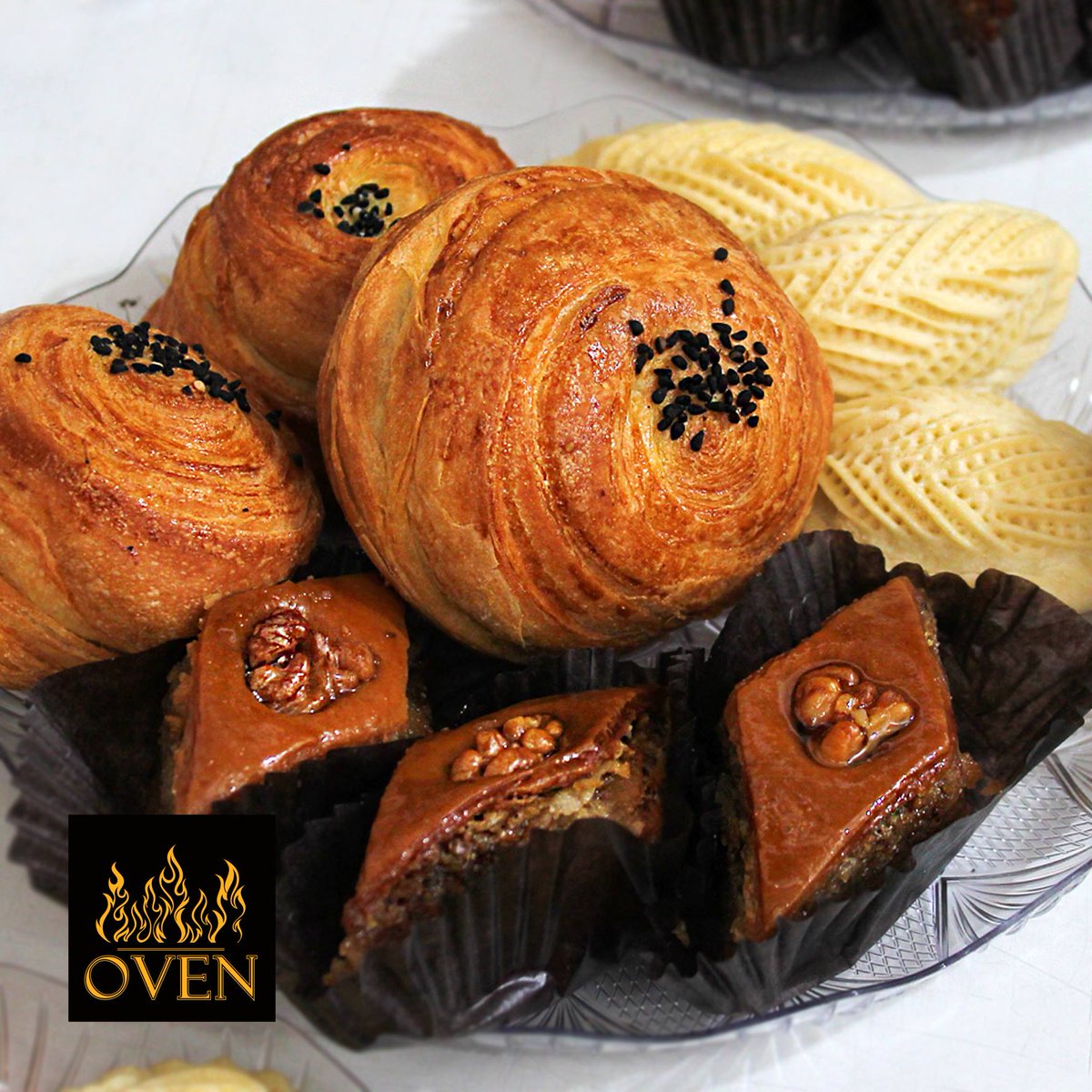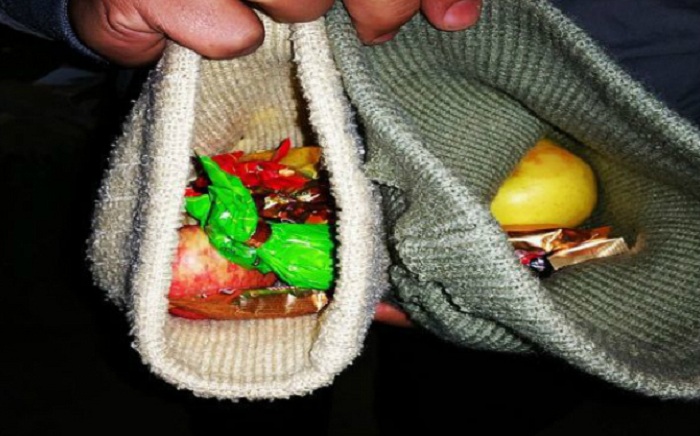Thread:
A lot of friends from the UK asked me to post about some Azerbaijani customs and traditions, as well as some interesting stereotypes from Baku.
So here we go...
A lot of friends from the UK asked me to post about some Azerbaijani customs and traditions, as well as some interesting stereotypes from Baku.
So here we go...
We love tea. Tea is almost sacred. It gets poured into a pear-shaped glass called an armudu, served without milk. A cube of sugar accompanies, and then locals take a bite before sipping the tea.
One more interesting thing about the tea. According to some local myths, the reason behind this quirky style dates back to medieval times when paranoid rulers were afraid of assassination by poison. Apparently, the sugar reacts to the toxin when dipped into the tea.
Hospitality in the Caucasus is second to none. Locals go to great lengths to help, and guests are a valued commodity.
Nothing sums up Azerbaijani hospitality more than the old saying which translates to something like this: ‘Let the houses which do not welcome guests collapse’.
Nothing sums up Azerbaijani hospitality more than the old saying which translates to something like this: ‘Let the houses which do not welcome guests collapse’.
We love to sing. Eurovision is just a small tip of the iceberg.
We got meykhana - hip-hop's ancient spin-off. Poets compete to spontaneously produce alternate verses to a strict pattern and relentless rhythm – wit is also a requirement
We got meykhana - hip-hop's ancient spin-off. Poets compete to spontaneously produce alternate verses to a strict pattern and relentless rhythm – wit is also a requirement
We got mugham - a traditional musical form, characterized by a large degree of improvisation.
It features a singer accompanied by musicians playing instruments, such as the tar (a long-neck lute), the kamancha (a four-string spiked fiddle) & the daf (a type of large tambourine).
It features a singer accompanied by musicians playing instruments, such as the tar (a long-neck lute), the kamancha (a four-string spiked fiddle) & the daf (a type of large tambourine).
Ashiq poetry and music constitute the major part of oral music heritage of the Azerbaijani culture.
The ashiq sing at weddings and play a fundamental role in folk festivals; from the beginning of the 20th century they performed on concert stages and made their own records.
The ashiq sing at weddings and play a fundamental role in folk festivals; from the beginning of the 20th century they performed on concert stages and made their own records.
Azerbaijan’s relationship with oil:
Oil stimulated Baku’s boom in the late 19th century, funding most of the elegant architecture, mansions and palaces in modern Baku.
Oil stimulated Baku’s boom in the late 19th century, funding most of the elegant architecture, mansions and palaces in modern Baku.
The second oil boom saw the nation’s wealth hit the roof.
The black gold funded Baku’s skyline. Oil was also the culprit behind why the value of manats almost halved against the US dollar as oil prices plummeted in 2015.
The black gold funded Baku’s skyline. Oil was also the culprit behind why the value of manats almost halved against the US dollar as oil prices plummeted in 2015.
Local population's relationship is complex.
Some younger Azerbaijanis aspire to work in the petroleum industry.
Others despise how the country’s wealth funded Baku’s opulence rather than developing rural infrastructure.
Some younger Azerbaijanis aspire to work in the petroleum industry.
Others despise how the country’s wealth funded Baku’s opulence rather than developing rural infrastructure.
Fire symbolises Azerbaijan. From Baku’s Flame Towers to Zoroastrian fire temples and burning water, infernos have deep ties to Azerbaijan culture.
No wonder, Azerbaijan is called the "Land of Fire."
No wonder, Azerbaijan is called the "Land of Fire."
The habit of taking the shoes off at the threshold of the home is a basic traditions of Azerbaijani society, you have to take into account that leave your shoes out, or at least take it off at the front door.
Even if the host said that you should not take it off (for knowing of your traditions), but for Azerbaijanis the most refined behave is to take off the shoes, and your host will offer you a pair of slippers to wear at home.
Whenever you are invited to someone’s home — which might be surprisingly often — it’s important to bring a small token of appreciation, whether it’s food or whatever.
For Azerbaijanis, traditionally when someone invites you to dinner it is assumed that they will pay. The idea of splitting a bill is much less common, and instead, the invited party can repay the favor at another time.
Bread is considered sacred in Azerbaijan. Wasted bread isn’t thrown away, as it’s considered too important to be discarded. People even say that they’ll occasionally kiss bread they find on the ground, and place it on a higher surface, off the ground and away from the dirt.
When families are matchmaking, the tea tray gives a good indication of how arrangements are progressing. If it’s served without sugar, more negotiating needs to be done; if it’s sweet, a wedding is definitely on the cards.
Novruz in Azerbaijanis a traditional holiday which celebrates the New Year and the coming of Spring.
When Azerbaijan was part of the Soviet Union, celebration of Novruz was generally unofficial and at times even prohibited.
When Azerbaijan was part of the Soviet Union, celebration of Novruz was generally unofficial and at times even prohibited.
Xonça*, a decorative tray in each home that is an iconic part of celebrations that take place on and around Novruz, reminds children and families of the festivities’ arrival.
* Khoncha
* Khoncha
The most important is samani, green sprouting wheat, is believed to be the most ancient attribute added to the xonça, and is usually placed at the center of the tray, symbolizing that life stands at the center of everything.
Special pastries prepared during the holiday, such as pakhlava, shakarbura and goghal, make xonça not just beautiful and meaningful but tasty as well. The 3 types of sweets have an ancient significance, and bear astronomical signs that pertain to the sky, sun, moon and the stars.
From the very dawning of the Novruz holiday, eggs have been dyed red and egg cracking competitions held. This custom still exists and is another children’s favourite.
In the evening, kits put hats under neighbors’ doors and hide, waiting for the neighbors to fill the hats with holiday favors. After the sunset people gather in the streets to kindle bonfires, dance around them, and jump over them to cleanse their souls ? ward off evil spirits.
Azerbaijani culture is known for its history of folklore and superstition, here are a few popular beliefs:
* Leaving scissors with opened blades brings misfortune and even death.
* If you meet a person with empty buckets, you are bound for misfortune.
* Leaving scissors with opened blades brings misfortune and even death.
* If you meet a person with empty buckets, you are bound for misfortune.
More superstitions:
* When your right hand hitches you'll have luck, if your left hand hitches you'll loose money.
* Horses and horseshoes bring good luck, the same for dreams about horses.
* Salt accidentally spilled in a home - expect a fight.
* When your right hand hitches you'll have luck, if your left hand hitches you'll loose money.
* Horses and horseshoes bring good luck, the same for dreams about horses.
* Salt accidentally spilled in a home - expect a fight.
And finally, let's move to funny memes.
AzTV or Azerbaijan Television is a state-controlled national television channel in Azerbaijan.
The channel is well known for its boring and monotone news shows and often mocked by everybody.
AzTV or Azerbaijan Television is a state-controlled national television channel in Azerbaijan.
The channel is well known for its boring and monotone news shows and often mocked by everybody.
Unlike Qarabag, Azerbaijan national football team and Azerbaijan FA is also heavily mocked by local football lovers. To be honest, in Scotland it is the same scenario.

 Read on Twitter
Read on Twitter